French pharma giant Sanofi ($SNY) has opened a major new R&D center in Shanghai with plans to employ 1,400 staffers while bringing together the drug development work being done in a dozen different Pacific Rim countries. Sanofi’s fifth big R&D hub will integrate work being done on biopharmaceuticals, rare diseases, vaccines and animal health. And highlighting the center’s new role as a central dealmaking spot, Sanofi also put out the word on two new research partnerships that will be coordinated in Shanghai.
Sanofi says it will now work with the GPCR Institute on new diabetes “breakthroughs” while collaborating with ZAI Lab on respiratory ailments.
Read more – FierceBiotech
October 1, 2014 | Greg
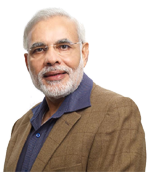
As Indian Prime Minister Narendra Modi travels to the U.S. to meet with officials, Doctors Without Borders (MSF) has one message for him: Don’t back down on drug patents.
The way the medical charity sees it, India’s patent-busting policies are critical to keeping med prices down. But that’s an unpopular goal with Big Pharma, which has been frustrated time and again by sales-hurting moves in a region it’s tabbed for serious growth. And MSF warned Modi that U.S. officials would try to lobby him over those very moves.
“India’s patent law and practices are favorable to public health, were put in place through a democratic legislative process, and are in line with international trade and intellectual property rules,” MSF’s Meena Narula Ahamed and Unni Karunakara wrote in an op-ed in Foreign Policy. “Every country has the right to set policies that balance private business interests with public health needs.”
Read more – FiercePharma
September 30, 2014 | Greg
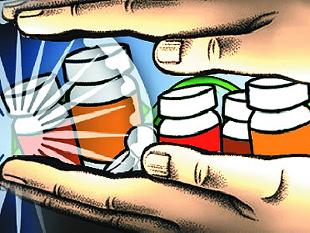
The government is considering legal action, including launching a defamation suit against US think-tank American Enterprise Institute research scholar Roger Bate, for maligning the country and running a smear campaign against the Indian pharmaceutical industry through a recent study, government officials told ET.
“We are exploring all legal options, including a suit against this set of individuals who have started a malicious campaign against the country and its drug industry through sweeping generalisations,” said a government official.
Legal consultation is being pursued through India Brand Equity Foundation, (IBEF, a trust set up by the ministry of commerce & industry) and preliminary opinion of our legal counsel has advised us to do it via Indian courts, he added.
Just days before Prime Minister Narendra Modi’s US visit, Bate along with a group of researchers published a study alleging that India-made drugs sold in Africa are inferior and poorer in quality than those sold in India and other middle-income countries. He announced findings of the study at a Capitol Hill event early this month.
Read more – The Economic Times
September 29, 2014 | Greg
Dr Reddy’s Laboratories may not be making news for big pharma deals. The Hyderabad-based company remains focused on unique product launches in key markets. In the past year, the market capitalisation of Dr Reddy’s increased to about Rs 55,000 crore on the back of a 35% gain in the stock price, making it one of India’s most valuable pharmaceutical companies. In an exclusive interview to ET, Chief Executive Officer G V Prasad opens up about how “jugaad” attitude caused lapses among few Indian drug makers, leading US Food & Drug Administration to impose curbs on some plants.
Read more – Economic Times
September 27, 2014 | Greg

The Indian government has stripped drug pricing authority NPPA of powers to cap prices of non- essential drugs after its recent order triggered industry protests.
The Department of Pharmaceuticals under the Ministry of Chemicals and Fertilizers on Friday ordered the National Pharmaceutical Pricing Authority (NPPA) to withdraw a guideline under the Drug (Prices Control) Order of 2013 that gave the pricing authority powers to cap prices of non-essential drugs.
NPPA complied with the order yesterday. The order, however, will be effective prospectively.
The drug pricing authority, in a statement late last night, said it was withdrawing “with immediate effect” a May 29 guideline that put price caps on certain (non-essential) drugs used for treatment of cancer, HIV and cardiovascular diseases.
It, however, did not mention of its July 10 order that capped prices of 108 non-essential drugs.
Read more – Zeenews
September 23, 2014 | Greg
Anthem Biosciences has invested Rs.150 crore for its new synthesis and fermentation manufacturing facility which will be commissioned in mid 2015. The company which is a dedicated contract research and innovation service (CRIS) provider has been on the radar of global pharma majors looking to offload their assignments to India based on high quality standards and adherence to delivery timelines.
The company’s Greenfield project at the Harohalli Industrial Area in Kanakapura, Bengaluru is its second unit which will focus on chemical synthesis and fermentation manufacturing on large scale. The build-up of orders from international customers led us to expand. The new facility will cater to much of the orders for large scale manufacturing, Ajay Bharadwaj, chief executive officer, Anthem Biosciences Pvt. Ltd told Pharmabiz in a telecon.
Read more – Pharmabiz
September 20, 2014 | Greg
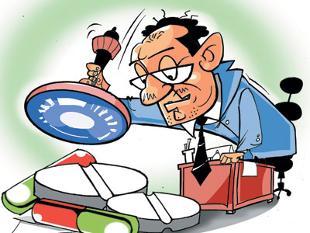
India-made drugs sold in Africa are inferior and of poorer quality than those sold in India and other middle income countries, alleges a new paper by an US think-tank American Enterprise Institute (AEI), the findings of which are scheduled to be announced in a briefing at the Capitol Hill on Wednesday.
The paper by Roger Bate, an economist and a visiting scholar with AEI which claims to have tested 1,470 samples of India-made drugs collected from different cities across the Africa, India and five other middle-income countries, alleges that Indian drug makers produce different quality drugs for different markets. The study, focused on antibiotics and tuberculosis drugs, accuses Indian pharma companies of cutting corners on the quality of drugs meant for poorer countries with non-existent or under-developed regulatory framework.
Interestingly, this scathing attack on the quality of the Indian drugs and drug makers comes just days before Prime Minister Narendra Modi is scheduled to visit the US. Top Indian drug makers raised doubts on the intention and timing of such a study.
Read more – The Economic Times
September 16, 2014 | Greg
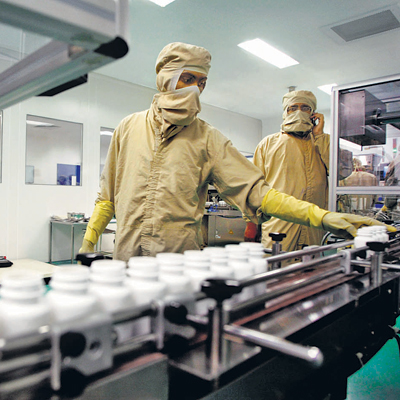
The recent US Food and Drug Administration (FDA) surprise visit at Sun Pharmaceutical Industries’s Halol facility may lead to an issuance of Form 483, potentially a precursor to an import alert.
The US FDA last week conducted a surprise inspection at company’s Halol facility in Gujarat, which contributes nearly 15-20% to Sun Pharma’s US sales. Recalls of various drugs made at the unit was seen as a trigger for the inspection.
According to an industry expert, US FDA now has its office in India and a surprise inspection in any facility of any pharma company is therefore a possibility now. The whole motive is to check whether these companies are maintaining the manufacturing and quality standards as laid out by the FDA, the expert said.
FDA issues Form 483 to a company at the conclusion of inspection in which the investigators observe conditions that they think violate the Food Drug and Cosmetic Act and related Acts. Form 483 notifies the company of objectionable conditions.
The company is encouraged to respond with a corrective action plan followed by its implementation. Else, an import alert could be issued against the company…
Read more – dnaindia.com
September 15, 2014 | Greg
After months of skirmishes, the government is finally going to sit down with American pharma giants this week to hear out their concerns, a move that comes weeks before Prime Minister Narendra Modi leaves for the US.
Sources told TOI that commerce secretary Rajeev Kher will hold discussions with the drug companies that have been critical of India’s intellectual property rights regime, especially over the use of compulsory licensing provisions that resulted in patent rights waiver for a cancer medicine. The other area of concern is the use of provisions to deny patents to medicines on the grounds that they lack innovation.
Big Pharma had got the US government to put pressure on Indian authorities but New Delhi has refused to budge so far.
Read more – The Times of India
September 14, 2014 | Greg
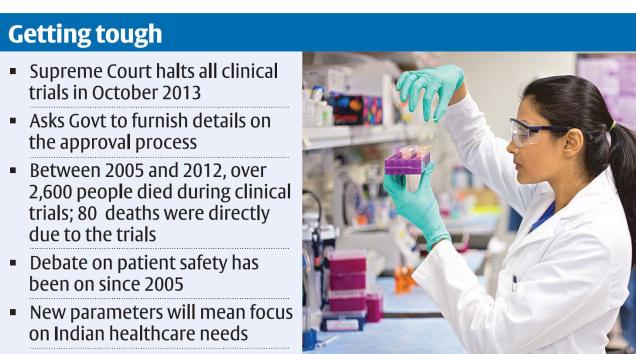
Pharmaceutical companies, research labs and others looking to conduct clinical trials will now have to justify the research. India is seen as a cheap destination for clinical trials and companies often test products meant for overseas markets here.
A new order issued by the Central Drugs Standard Control Organisation makes it compulsory for these entities to prove why the research needs to be conducted in India.
Parameters set
The order has made it mandatory for them (companies/research labs) to furnish details on three new parameters while filing applications. They are: assessment of risks versus benefits to patients; details on innovation vis-à-vis existing therapeutic options; and details on unmet medical needs in the country.
In 2013. only 17 applications for global clinical trials received approval in India, against 55 in 2012. The number has been falling following controversies.
The new requirements come almost a year after the Supreme Court passed an order, in October 2013, asking the Government to assess clinical trial applications on these parameters.
The parameters have been set to protect the rights of Indian patients, said Suresh Menon, executive committee member of the Indian Society for Clinical Research, speaking to BusinessLine. “In practice, these parameters are being looked at for about a year now, but now sponsors will have to justify their applications at the onset,” he said.
Read more – The Hindu Business Line
September 12, 2014 | Greg
Even as contract manufacturing of pharmaceutical products provides ample opportunity for small and medium enterprises to grow, the sector remains a distant dream for new entrepreneurs.
Prohibitive costs
Costly machinery, stringent regulatory norms and price controls are seen as major deterrents for new entrepreneurs from venturing into the pharmaceuticals business, even in contract manufacturing, which contributes about 50 per cent to the country’s ₹77,000-crore domestic drug business. According to industry insiders, contract manufacturing in the country is growing at the rate of 20 per cent per annum.
Read more – The Hindu Business Line
September 11, 2014 | Greg
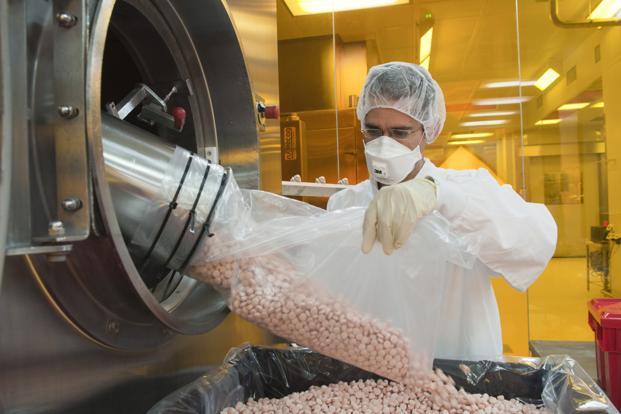
India’s drugs and pharmaceuticals industry is likely to post total sales of Rs.2.91 trillion ($47.88 billion) by 2018, with an average yearly growth of at least 14%, aided by a rapidly growing domestic market and the newly emerging export opportunity as patents of at least a dozen blockbuster drugs in the US expire in the next three years.
“During 2014-2016, about $92 billion worth patented drugs are expected to go off patent in the US as compared with $65 billion during 2010-12,” says an industry analysis report released on Wednesday by Care Ratings, India’s second largest credit rating agency. The domestic drugs industry, which is valued at Rs.1.6 trillion at present, according to Care Ratings, is also expected to grow in the local market with aggressive rural penetration by drug makers, increased government spending on health and growing health awareness among people.
The large number of drugs going off-patent in the US presents opportunities for local generic drug makers including Sun Pharmaceutical Industries Ltd, Lupin Ltd, Dr Reddy’s Laboratories Ltd and Cipla Ltd among others.
Read more – Livemint
September 11, 2014 | Greg
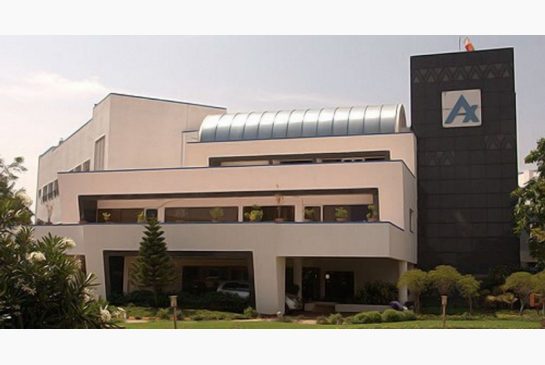
North American patients have been put at risk by prescription drugs that Canadian pharmaceutical companies sold with knowledge that their products were defective, a Star investigation has found.
Using records obtained through U.S. freedom of information laws, the Star also found other Canadian companies have:
- Hidden, altered and in some cases destroyed test data that showed their products were tainted or potentially unsafe.
- Not reported evidence of side-effects suffered by consumers taking their drugs.
Since 2008, more than 40 Canadian drug companies, including Toronto-based generic giant Apotex, have been cited for serious manufacturing violations.
All of these violations are detailed in inspection reports provided to the Star not by Health Canada but the American Food and Drug Administration (FDA), which also inspects Canadian facilities.
The Star investigation found that while the FDA strictly and transparently enforces drug manufacturing laws, Health Canada leaves Canadians in the dark by keeping secret details of problems its inspectors find.
Meanwhile, drugs and drug ingredients banned from the U.S. market have been allowed by Health Canada into Canadian pharmacies.
Read more – Toronto Star
September 11, 2014 | Greg

The domestic pharmaceutical industry, which has been growing at a steady pace, faces the challenge of identifying the right talent and retaining them for long-term, experts have said.
“The pharmaceutical industry in the country has fuelled employment opportunities across all functions, including research and development, sales and marketing, finance, project management and supply chain.
However, identifying the right talent for every role and retaining them over the long-term remains a significant challenge for the industry,” said Shailesh Ayyangar, president of Organisation of Pharmaceutical Producers of India OPPI at a human resource summit here.
Ayyangar, who is also Sanofi’s managing director, India, and vice-president, South Asia, said innovative talent development programmes, along with competency and skill development workshops, are the need of the hour to harness young talent.
Read more – The Times of India
September 10, 2014 | Greg
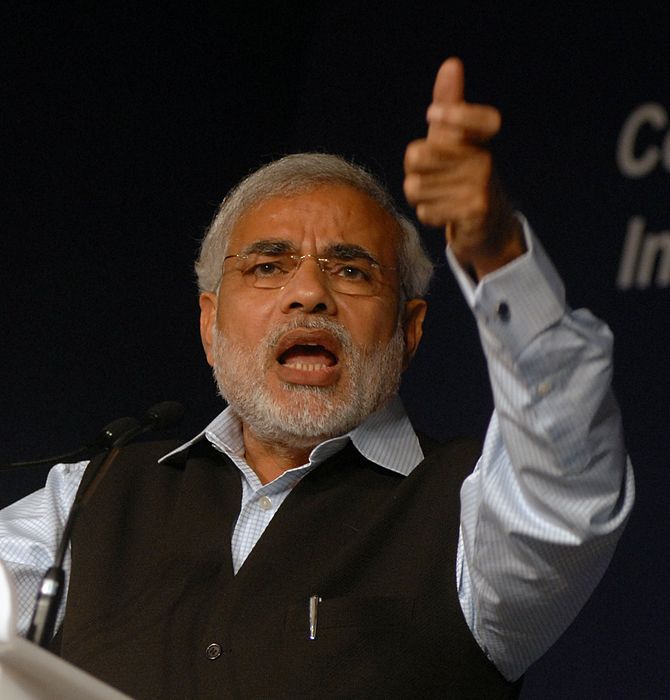
India’s recently elected Prime Minister, Narendra Modi, will visit the U.S. later this month. One of the sticking points in the U.S.-India relationship is weakness in India’s laws governing intellectual property (IP). The Global Intellectual Property Center of the U.S. Chamber of Commerce ranks 25 countries in its Global IP Index, and India comes in last place. Indian growth will continue to lag as long as this persists: Researchers have demonstrated the positive relationship between IP protection and a county’s prosperity.
One of India’s weak spots is patent protection for new prescription drugs. New research also shows, counter-intuitively, that this limits patients’ access to new medicines. Professors Ernst R. Berndt and Ian M. Cockburn analyzed the 184 new medicines approved by the U.S. Food and Drug Administration between 2000 and 2009. It took more than five years for half of those drugs to become available in India.
Ten years after being launched in the U.S. or elsewhere, almost one quarter of the new medicines were still not available in India…
Read more – Forbes
September 10, 2014 | Greg










